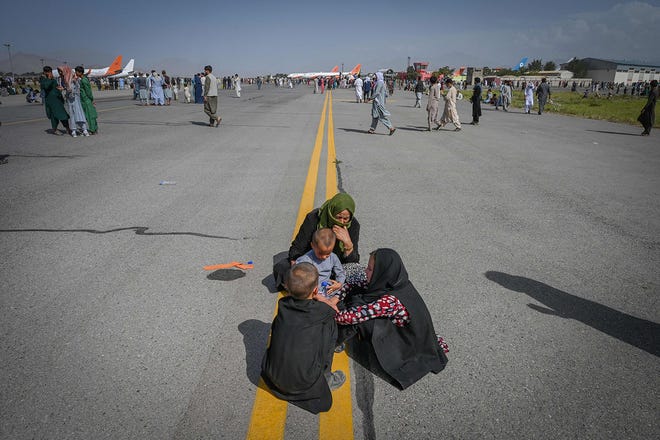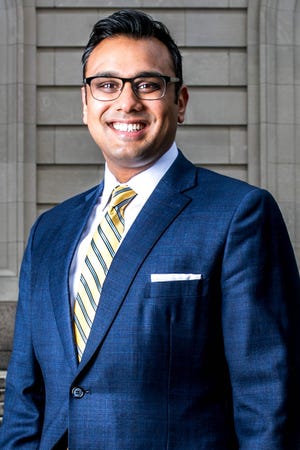Opinion: U.S. has a moral obligation to accept Afghan refugees

As we watched in horror the fall of Kabul, in real time, and with a rapidity and breadth of sudden collapse that surprised even the most cynical of observers, the question that now presents itself is simple: Do we have an obligation to accept these Afghan refugees?
Unequivocally, and without hesitation, yes.
For those of us of a certain age, the images of a Chinook evacuating the embassy harkened back to Saigon in 1975. That trauma endures. For others, the images of people clinging to a C-17 and subsequently falling to their deaths is nothing short of a macabre bookend to a war that began in the aftermath of the attack on 9/11 and the visuals burned into our collective consciousness from that day. Regardless of the trauma many of us may feel, it pales in comparison to the trauma experienced by our Afghan allies over the last 20 years. They need our help and we have a moral obligation to assist, and to do it now.

Veterans of the war in Afghanistan are experiencing their own trauma this week as they hurt from seeing images of the places where they fought so hard to maintain peace, and where their brothers and sisters lost their lives, falling to the Taliban. And they are being inundated with requests through email and social media from former translators, their families, and other allies begging for assistance to get out. Those allies are fearful for their lives and are frustrated by feeling abandoned by the same Americans they risked their lives to help for a generation.
Early estimates for Afghan refugees from the Biden administration indicates 20,000 to 22,000 people to be temporarily housed at military installations around the country. This is not nearly enough, but even for those individuals who will make it out, we owe it to them to help build their new lives in our community. And we especially owe it to the women and girls who, for a generation, were given the hope of an education and a better life who now see that hope being rapidly extinguished.
We need a whole of society and government approach to receiving and resettling our allies. We are calling upon all elected leaders in our region to advocate for the Greater Cincinnati and Northern Kentucky region to be a priority location for Afghan refugee resettlement. We are asking a roundtable be convened with faith leaders, non-profit organizations, private industry, veterans’ groups, and government officials to fully resource resettlement in our region and to make it a top priority.

By now, we have all seen the photo of over 600 Afghans crowded onto a C-17 designed to transport one sixth of that. With nothing but the clothes on their backs they left their country likely to never see her again, seeking a better life in the United States of America. Look at their faces. They are, in no uncertain words, the tired, the poor, the huddled masses, yearning to be free.
On the northern bank of the Ohio River, we built the Underground Railroad Freedom Center to pay homage to the critical role our region played for those seeking freedom from slavery. Let us not dishonor our legacy by turning a blind eye now.
The eyes of the world and of history are watching.
Pavan V. Parikh is a Cincinnati attorney, an officer in the U.S. Army Reserve and a partner with the Truman National Security Project. Dr. Ryan Olexia is a veterinarian in Northern Kentucky and former U.S. Army officer. The views expressed are those of the authors and do not necessarily reflect the official policy or position of the Department of the Army, the Department of Defense, or the U.S. government.

